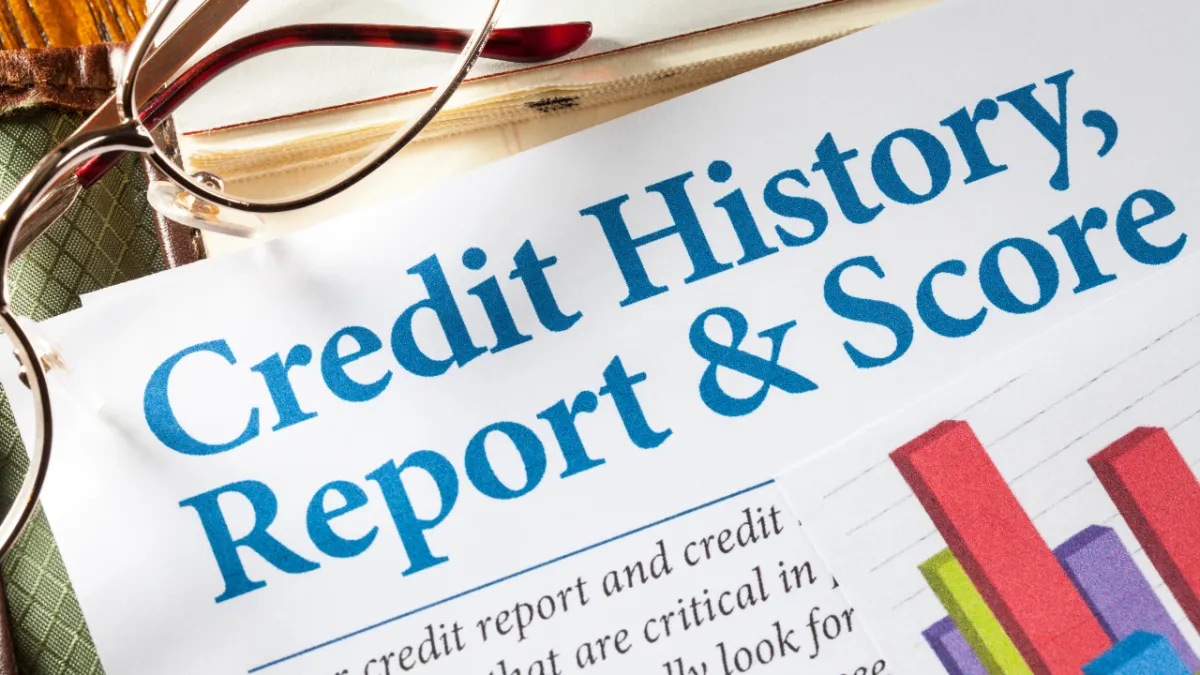Blogs
NOVEMBER 11, 2022
How to Avoid Business Credit Mistakes & Build Scores Fast

If you’re looking to build business credit quickly, try not to make any of these missteps that can cause lender concern and score decreases. All vendors, underwriters, investors, and potential partners will gauge your level of risk based on your business credit scores and ratings, so make sure all of your bureau profiles are pristine and spotless.
Quick Tips
Firstly, you must plan the structure of your business with your thoughts on the future before you register it.
If you experience a growth spurt or want to modify your business details, be sure to update your business credit file at all three major business credit bureaus.
Once your business is established, you must ensure all business transactions come with detailed paper trails with nothing marked in your personal name. This means all checks must be written via a business bank account and all purchases made on business credit cards.
When looking for supplier credit or getting a new business credit card, make sure they report positive transaction history, or that you know how to request reporting if they do not.
Where possible, don’t ever offer a personal guarantee on any credit application or apply with your SSN before being found out it was the only reason your EIN-only application was denied.
Business Structure
How your company is structured is an important enough decision that you must thoroughly research the future path you’ll take, even before you start doing business.
If you select the wrong business structure from the get-go, it will have major implications in restricting how fast you can build business credit. While sole proprietorships are easy to manage, you’ll pretty much have to build them with personal funding.
The owner of a sole proprietorship is also legally liable for any loan default or judgments against the company. Any financial struggles or missed payments of company invoices will then negatively impact, and possibly severely damage the owner’s personal credit score.
Solution
For most small business owners, registering as a Limited Liability Company (LLC) is the most cost-effective way to go. Creating a business entity is generally quite cheap and can easily be done yourself. By owning an LLC, you will also insulate yourself from personal liability related to your business dealings.
When applying for credit using your EIN (Employer Identification Number), you also not be held liable for any company debts or credit misuse. Just be sure when you’re applying for Tier 1 vendors or Tier 2 credit that you don’t include your SSN on the application, or tick off any boxes that require you to offer a personal guarantee.
For businesses that expect to generate a large amount of income in a short amount of time, a corporation should be considered. Beyond the extra cost of filing for a corporation, a certified account is required to file your taxes, which must be quarterly, rather than annually like an LLC. Corporations do however pay a lower tax rate and make it easier to expand your company or divide it into a partnership. While there is some give and take here, most small businesses still generally desire to pay their taxes annually which all LLCs can do.
Personal Credit
Paying for anything business-related with personal credit or checks will not help you build business credit. In fact, the more you use personal credit for your business, the greater the chance it will harm your personal credit score too.
Your business credit profile needs to grow alongside your company, so any and all purchases must be made through either a business credit card or business bank account.
The more financial documentation you collect that showcases your tradelines and credit suppliers, the easier it will be for your business to get more credit and higher limits. In comparison to personal credit cards, the limits handed out to businesses are 5-10x higher than those given to individuals.
Solution
Establishing a business bank account should be the very first thing you do after registering your business. Once you have your EIN, you must apply for a
bank account right away. There are many free business checking accounts at online banks like Novo, that only require minimal deposits to open. If you need in-branch banking, then seek out one that will wave transaction fees if you maintain a specific balance.
The next step after opening a bank account is to apply for business credit cards that report to multiple credit bureaus like DNB, Experian, and Equifax. If you’ve just started a new business or don’t have a 700+ personal credit score, you can still easily get approval for a secured Capital One Spark Classic.. Your initial on this secured credit card then becomes your credit limit. If you need a higher limit, then you’ll have to make a higher deposit.
Make sure you have your new card in hand before you start applying to net 30 vendors, so you can double your positive payment credit reporting.
Everything you purchase on net 30 terms from each vendor get reported
Paying your business credit card in full and on time also get reported
Vendor Reporting
Over 90% of companies that offer supplier credit with delayed payment terms, do not report positive transactional history for their customers. Because this requires time and effort, most simply report negative transactions, such as late or delinquent payments which will only lower your credit rating.
To build business credit, and increase your credit score, you will need to demonstrate having a history of positive trade credit transactions. To obtain this, you either have to make sure everyone you do business with, reports all transactions to at least one major credit bureau. You can also learn how to request trade reporting, as well, as manually report your credit history.
Solution
When looking for supplier credit with easy approval requirements, use our handy list of net 30 vendors that also offer monthly reporting of positive payment experiences. You can further apply to Tier 2 credit vendors once you have at least 90 days of business credit history and a minimum of 3-5 tradelines reporting regularly.
If your current trade partners don’t share positive payment experiences with business credit agencies, then you must ask them to. If they say they don’t know how, direct them to join the global trade exchange program at Dun & Bradstreet. If they flat out, say can’t or won’t, then try to report your payment experiences manually through Nav Business or the D&B Credit Builder program.
Credit Card Reporting
It’s shocking how many business credit cards don’t actually report your monthly payment experience to the three major credit bureaus. Some may only report to just one, while others just report to personal credit bureaus due to your offering a personal guarantee.
In fact, some business credit cards only report to personal credit bureaus and are tied directly to the business owner’s personal credit file. This is due to companies lacking a proven credit history and applying for a business credit card that they couldn’t otherwise qualify for unless they included the owner’s SSN and a personal guarantee.
Solution
Where possible, never offer a personal guarantee when applying for business credit. Also, don’t pay for anything related to your business via credit unless you know card reports to multiple business credit bureaus. Start by reviewing the business credit cards we recommend to see if there are any that you can currently qualify for.
If you have fair personal credit with a score of 580 or higher, you can still easily get approved for a secured Capital One Spark Classic credit card that reports monthly to Dun & Bradstreet, Experian, and Equifax. As long as you pay your bills promptly and never miss a payment, within 3-6 months, they’ll likely offer pre-approval for one of their unsecured business credit cards.
Personal Guarantees
When you build your business credit by offering a personal guarantee attached, you leave yourself open to being personally liable for any misuse. If your business must default on payment, you are held personally liable to make sure the debt is paid.
In case of non-payment or delinquency, any creditor you offer a personal guarantee to can come after your personal assets, such as your house or car to reclaim what is owed.
Solution
Never put your SSN on any business credit application and don’t tick any boxes that request a personal guarantee.
Just apply using your Employee Identification Number (EIN only credit) and leave all personal guarantee sections blank. This way, if your application is approved, it will be on the merit of your business credit history, and there will be no personal liability attached to it.
That being said, if you want to build business credit quickly, there are certain times you need to offer it. Some Tier 2 vendors require you to be in business for 1-2 years or have reliable monthly revenues to get EIN-only approval.
If you find yourself getting denied for retail store or fuel cards using just your EIN, it’s most likely due to a lack of credit history. When you need credit approval before you’re typically qualified to apply, that is the only time using a personal guarantee is acceptable. Once you’re granted approval for business credit with a personal guarantee attached to it, you must then ensure you never carry a balance or make a late payment.
Where possible, pay your invoices as early as possible, even on the same day, as this will greatly improve your D&B PAYDEX score. If you can push your score into the high 80s or low 90s, you can then try having the personal guarantee removed from your credit card.
Business Details
The devil is the in details when it comes to building business credit quickly. A simple phone number change here, or starting to use Street instead of St in your business address can put cause your credit scores or approval rates to decrease.
Lenders, underwriters, and all credit bureaus rely on the information you provide, as well as, what they can readily find on the web. So, if your credit application details differ from those filed with the credit bureaus or what can be found online, your credit applications are likely to be denied.
Solution
You need to plan out all of your business applications, filings, and financial documents in advance before signing on the dotted line. Where possible, make it a point to never change anything related to your business name, address, or phone number.
If changing any details, be sure you modify your credit profiles at Dun & Bradstreet, Experian, and Equifax on the very same day. If your business details are listed in Facebook, Google Maps, Yelp, or any other online directory/social media website, make sure you manually update those profiles too.
Should your business grow in size, employees, locations, or annual revenue, be sure to promptly update your Dun & Bradstreet credit profile right away. This can easily be done through their free D-U-N-S Manager tool. Whatever changes you make internally, no matter how small they seem, make sure you update any references to outdated details in your credit profiles and wherever else your business is listed online.
Our Blogs
More Blogs

Avoid business credit mistakes
If you’re looking to build business credit quickly, try not to make any of these missteps that can cause lender concern and score decreases.

Business Credit Reports
When it comes to credit reports, business owners check the company info & financial data found in their business credit profile for accuracy.

What Does 2/10 Net 30 Mean?
Ever wondered what 2/10 means on your net 30 invoice? It’s a discount formula that can also give you a Paydex score boost when paid on time.

High-Risk SIC Codes
While originally developed for federal government agencies, business classification system SIC codes are now also used by credit reporting agencies.

C Corp vs S Corp
By choosing your business structure and corporation status wisely you adjust how you pay taxes to the Internal Revenue Service.

ERC Explained!
Learn the true facts! Any eligible employer who paid qualified wages to W-2 employees during COVID-19 can claim the employee retention credit.
Have A Question?
To the right you'll find answers to the most frequently asked questions we get. Feel free to reach out to us if you have more questions and we'll be happy to answer them.
How do I get Business Credit that's not linked to my SSN?
Just like how consumer credit is linked to your SSN, your business credit is linked to your EIN. This means when applying for business credit, it's usually not required to include your SSN.
Once you properly establish your business entity and Credibility Foundation, you start off building your business credit profile with smaller vendor accounts. As your business pays those retailers you will then qualify for revolving store credit cards, and then cash credit you can use anywhere, just like a normal personal credit card.
Keep in mind that because of federal regulation you will still need to supply a SSN for identity verification purposes. Also providing a personal guarantee can open up even more financing options.

How long will it take me to build Business Credit?
You can qualify for real usable vendor credit immediately. You’ll then start to qualify for store credit within 60-90 days that doesn’t require a personal credit check or personal guarantee.
Within 6 months you should have access to $50,000 in real usable credit, including Visa and MasterCard accounts.
You can then continue to build $100,000-$250,000 or higher in business credit within a year to two.

Is this complicated? Can I really do this?
Every step of the process includes simple education videos and direct resource links so that your business credit building journey is a 'no-brainer'. In the rare occasions that you need help, you have our business credit advisers and finance officers to help!
So as long as you're committed to follow our instructions and are serious about the success of your business, then yes, you really can do this -- even if you're technically challenged.

Can I build my Business Credit on my own?
It's true that between all of our free guides, articles, videos and seminars, you have enough knowledge to go get business credit all on your own. It's also true that we don't hold anything back in our sharing of knowledge because at the core of our company, we want to help as many business owners (and those aspiring-to-be) as possible to have an equal opportunity to succeed and thrive.
With that being said, there still are services you will have to pay for such as 411 listings, business credit monitoring, and a business credit builder so that you're reporting to the right agencies (costing over $3000), not to mention, you'll still have to go out and find vendors and lenders. There are also lots of limitations going this way.
The difference with us is that we have already established countless partnerships and affiliations, which allows us to fully leverage the power of our entire company and client-base for each individual client. Essentially, you get to leverage our company for your benefit. And due to our established credibility in the business credit and financing industry, it's easy for us to expand and constantly add even more funding sources and options, which YOU benefit from. That’s how we have the largest supply of vendors and credit issuers than anywhere else.
In short, if you were to try and get business credit and financing on your own or somewhere else, you'll pay MUCH more than what we ask, and it would take a lot longer. We have this entire process dialed in so that you can get the most amount of funds, in the shortest amount of time, and at the lowest rates possible.

Navigation
© Copyright 2026 | The CapLadder Group LLC | All rights reserved.



